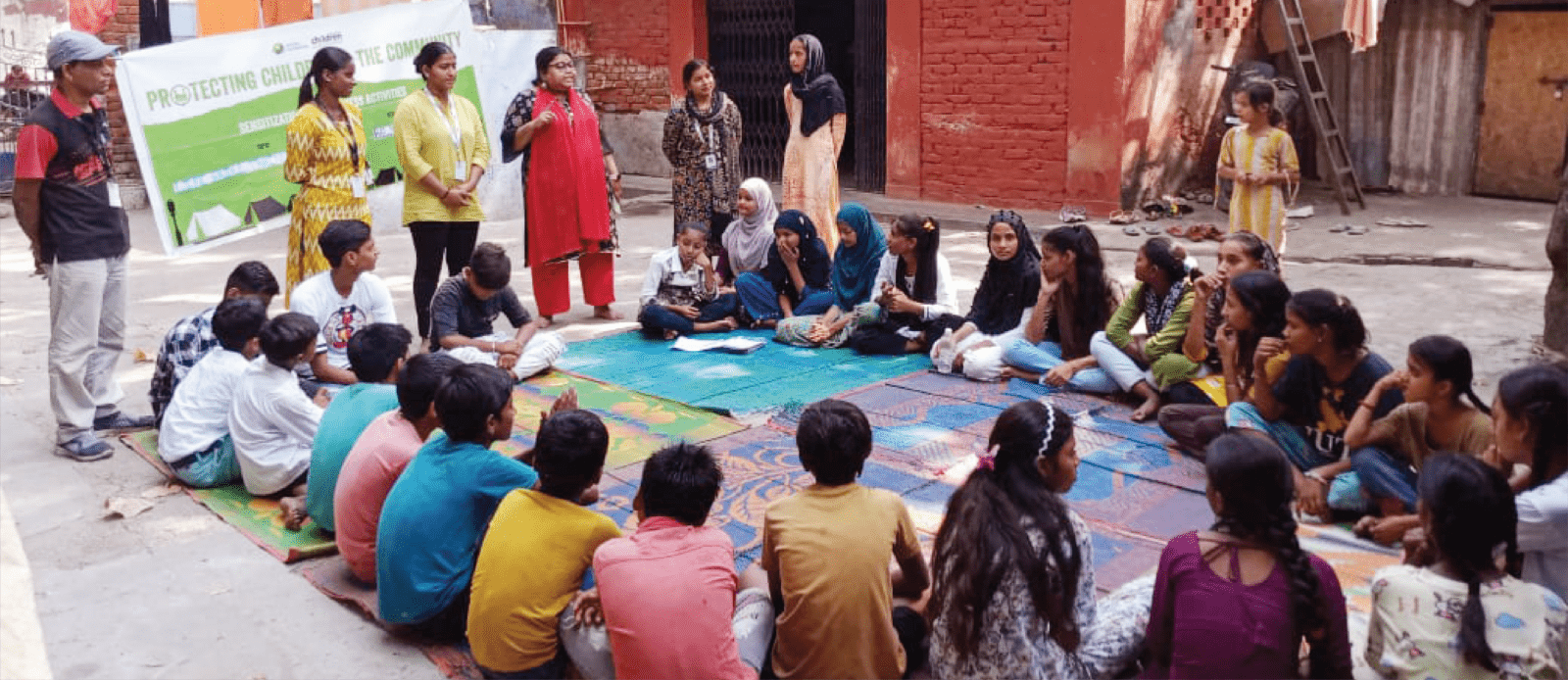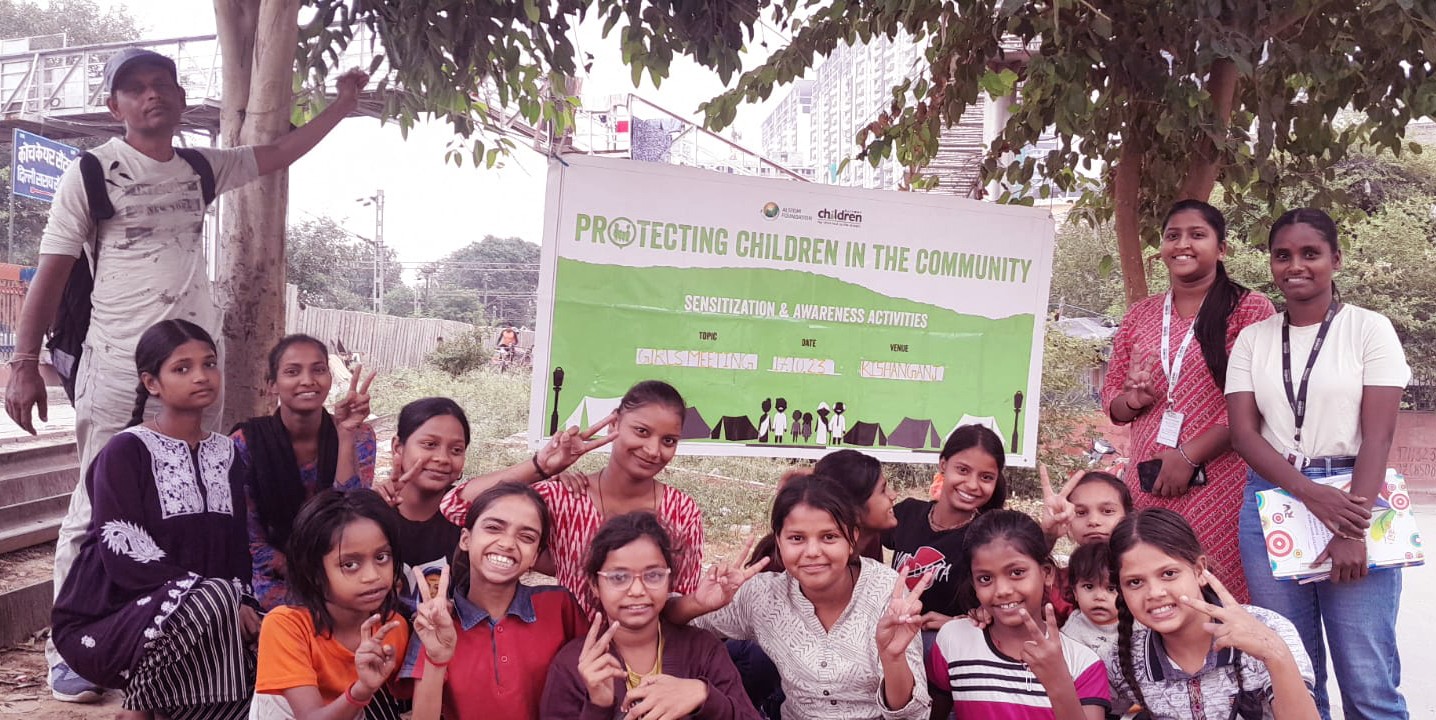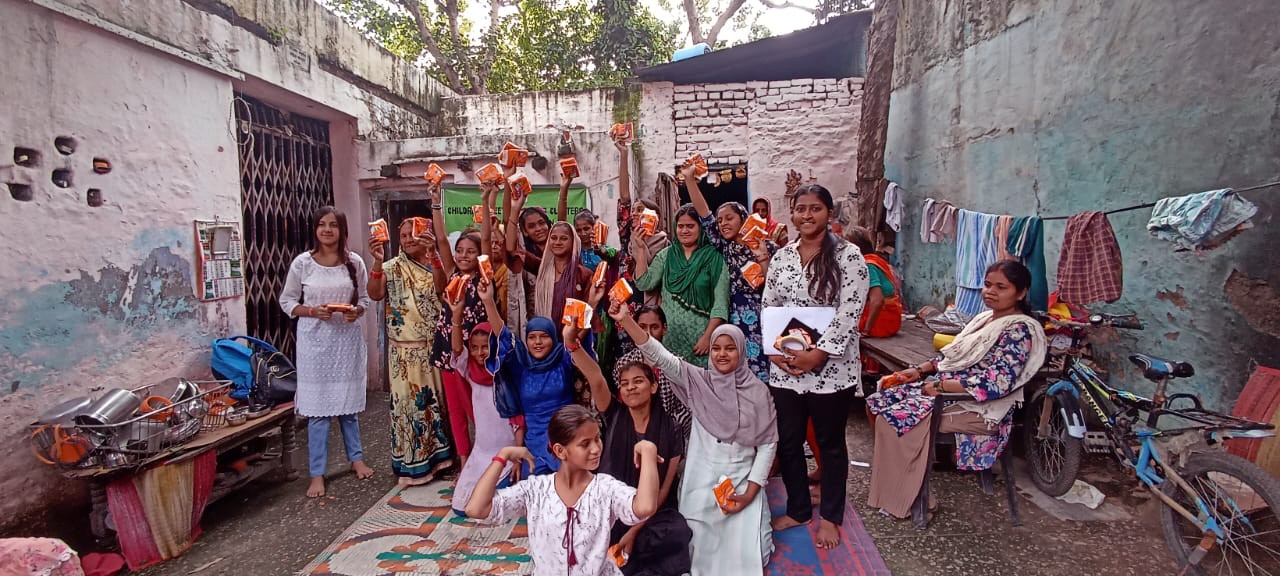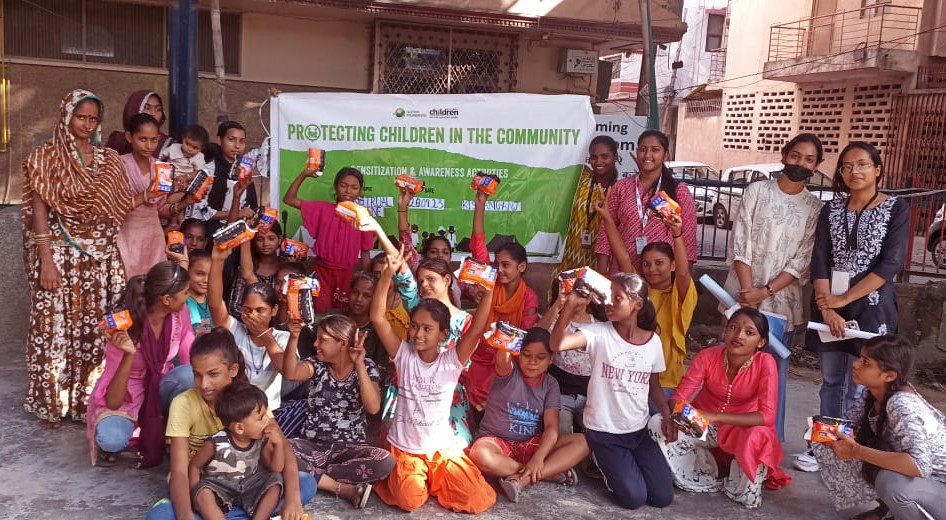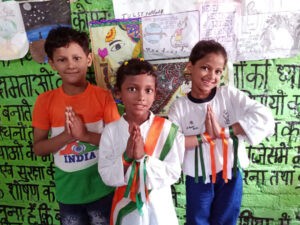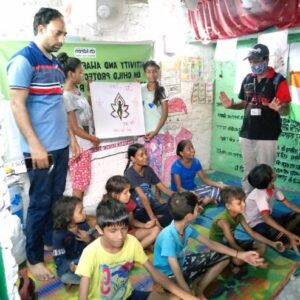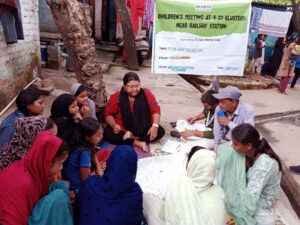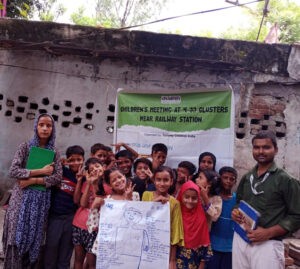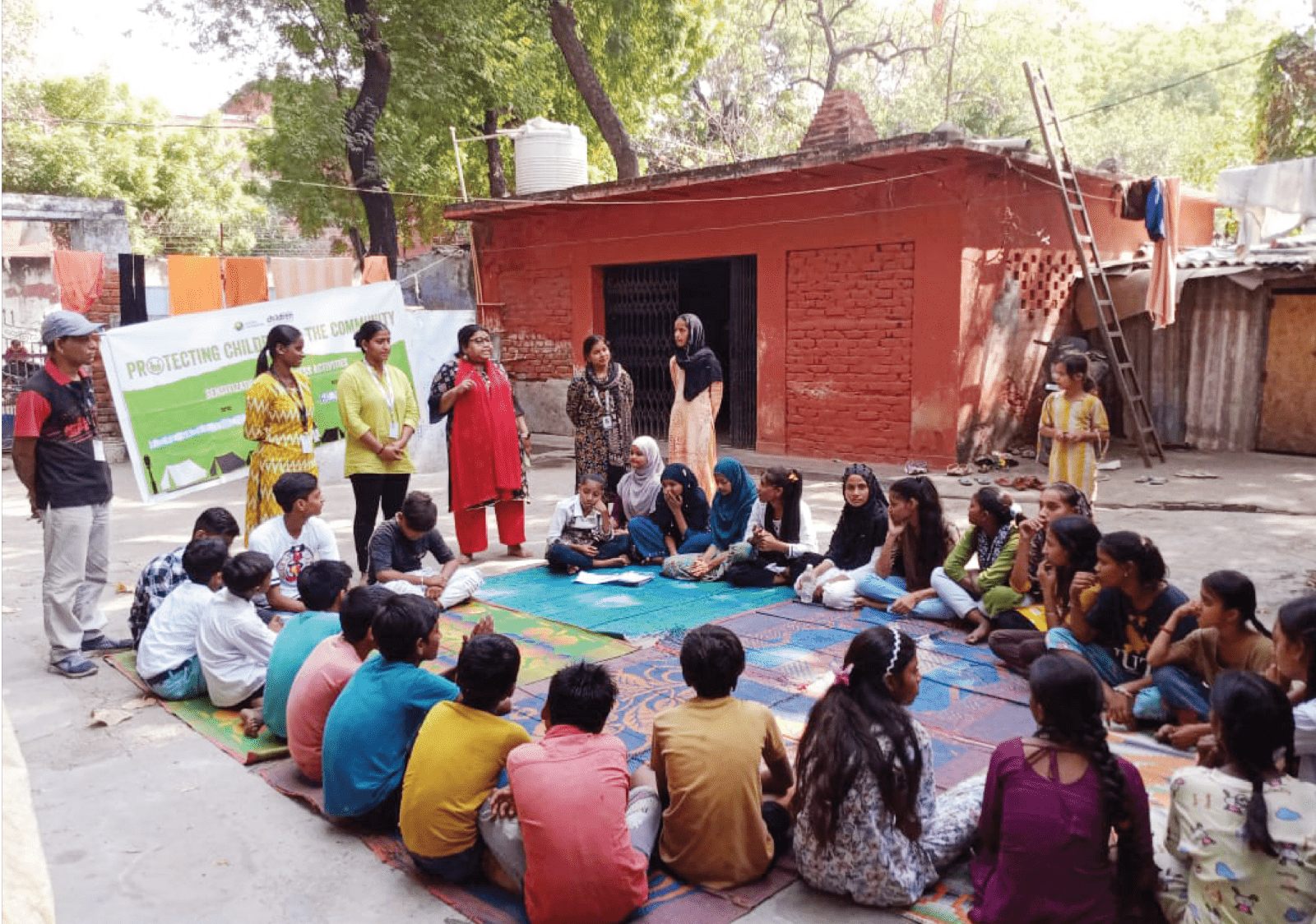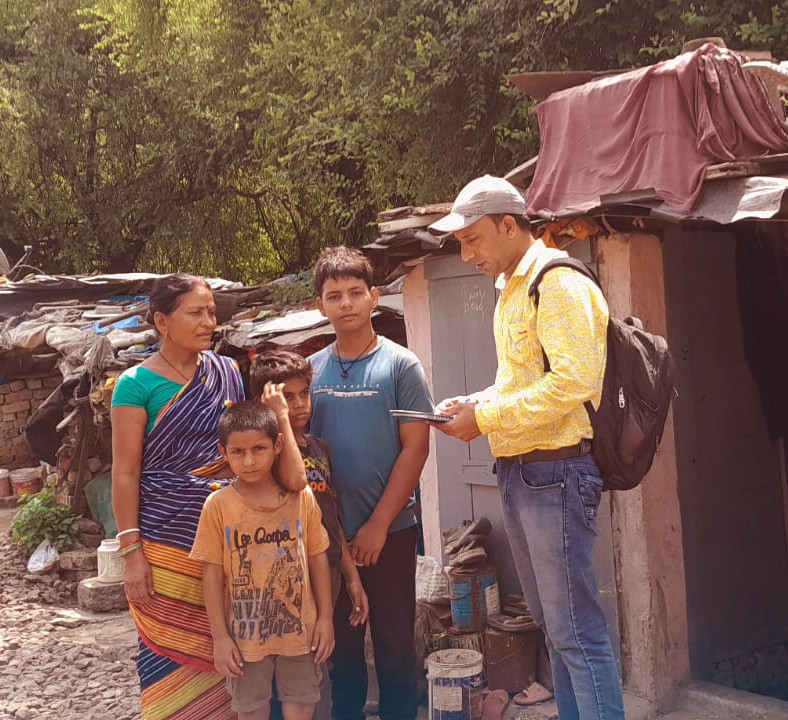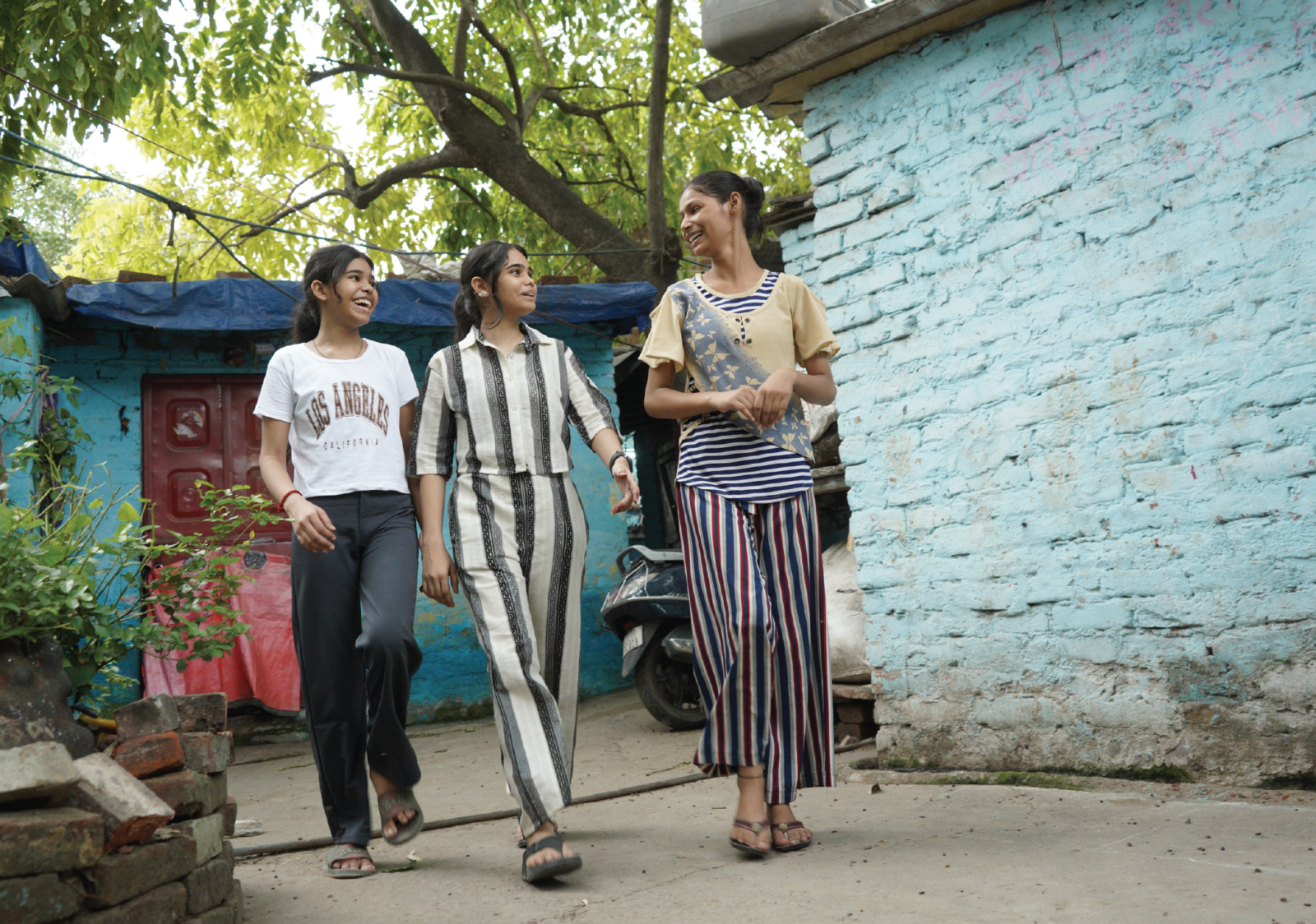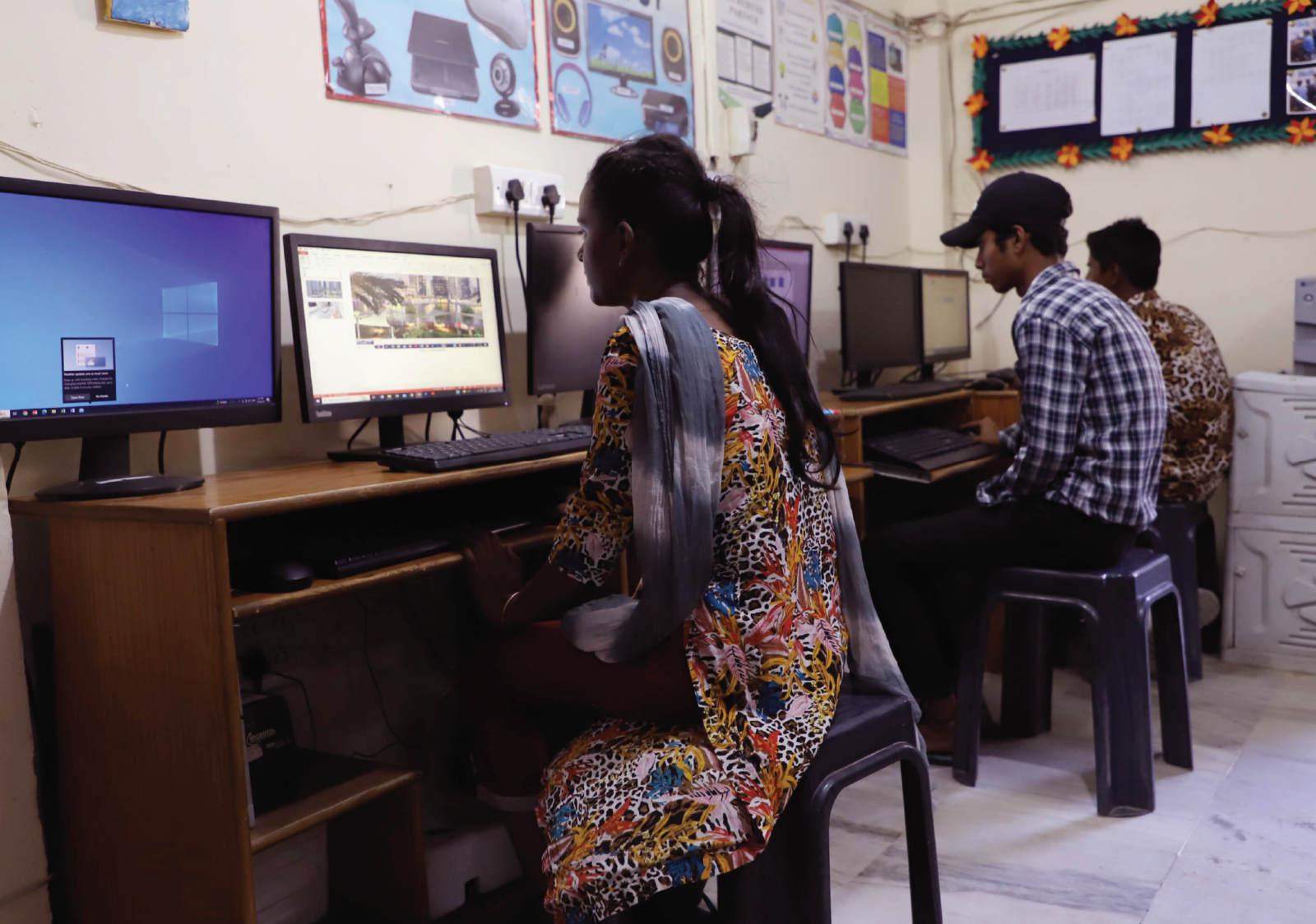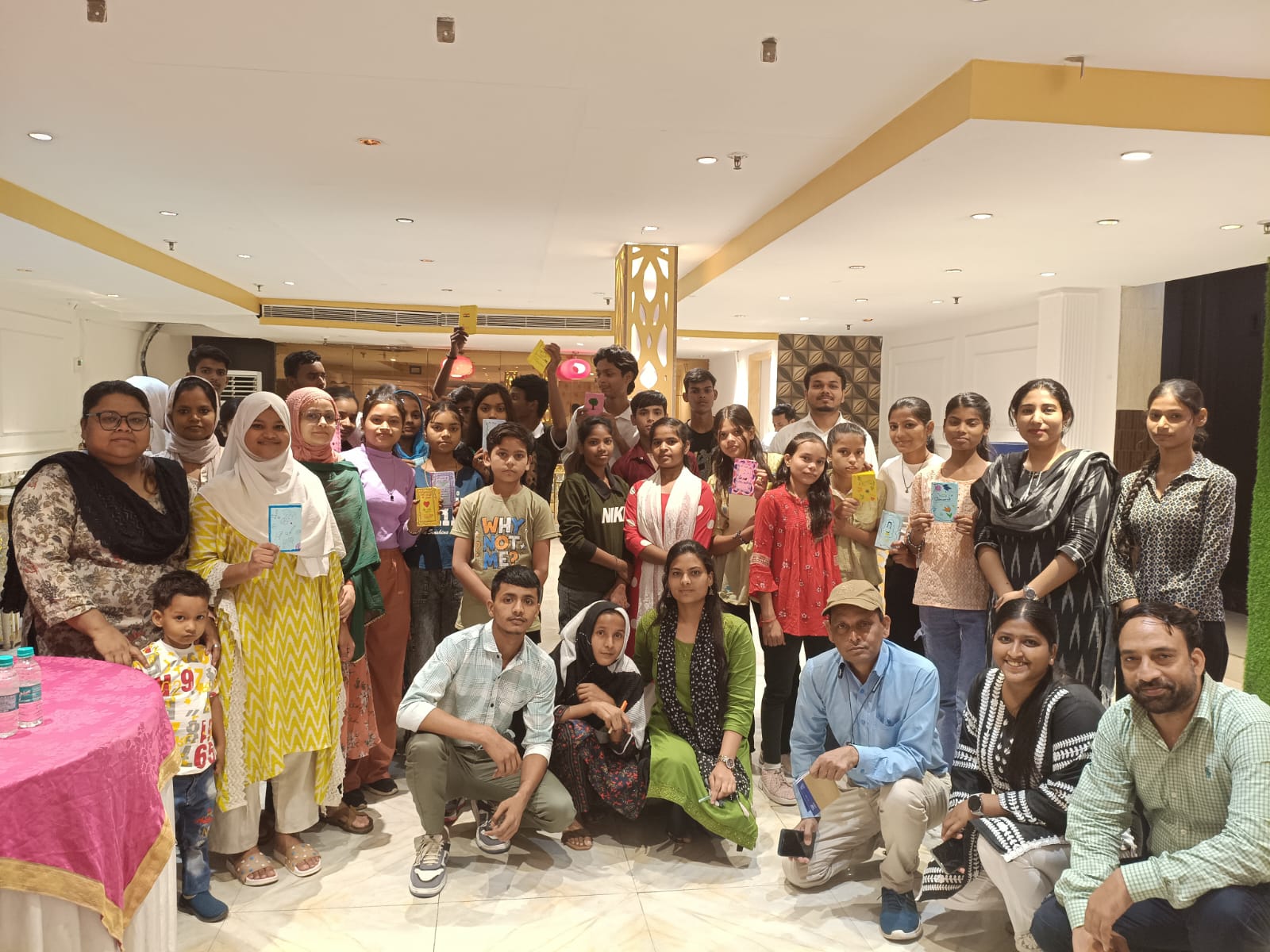Back when the pandemic had hit India, Railway Children India (RCI) had extended its scope of work by reaching out to communities around transport hubs to distribute relief materials. Apart from the glaring gap in equity, RCI realized the dire need of awareness and support within these communities too.
Cases of children dropping out from schools, falling prey to substance abuse, or simply not having a nurturing environment to grow in were rampantly visible within these bastis. This is where the idea of setting up Child Activity Centers within these communities was incepted.
Child Activity Centers were established with the vision of providing a nurturing and safe haven to children within the communities they inhabit. As the centers developed over the years, though, they advanced into becoming a hub of skill development and social awareness for both children and their parents.
Activities gave way to groups and meetings, which turned to gatherings, celebrations and opportunities of learning for all.
Presently held across 7 communities across Delhi and Ghaziabad, CACs focused solely on bringing children to the center. In doing so, CAC’s had a humble beginning, which is best exemplified by Bicchal Dwar Community’s CAC that began in the Pradhan’s home.
Today, however, organized CACs are observed in Tulsi Nagar, Valmiki Basti, Daya Basti, Kishan Ganj, Bicchal Dwar, Chand Mari and Bhur Bharat Nagar.
The Adolescent Girls Group of KishanGanj Community
At the core of the CACs are children’s groups. Comprising children of varying age groups and therefore of varying intellectual needs, these children groups are categorized as Adolescent Girls Group, Adolescent Boys Group, and a Mixed Group (comprising boys and girls below 13 years of age). A distinct Parents Group also exists in each community.
There’s a bunch of exciting and insightful events that take place within CACs all year-round. Let’s take glimpses of them all in this tell-tale photo blog.
Apart from a daily schedule of learning and extra-curricular activities, the CACs are brought alive during specials days, when children and parents gather to celebrate and conduct dialogue.
Furthermore, RCI’s vision of establishing sustainable learning practices that strengthen and empower children within the communities led to novel models such as the Peer-Led Training Sessions.
An extension of RCI’s life-skill training sessions, the peer-led training approach requires identifying peer facilitators from the community and training them to in turn positively influence and conduct training sessions with their peers.
Given the extensive activities conducted with children in communities, it was only natural for our team to interact with parents as well. These interactions began with monthly parenting sessions, wherein topics such as the role and importance of education are discussed, along with discussions about familiar challenges/issues that crop up in their parenting journey.
Gradually, however, RCI began extending more support to parents in the form of varied workshops and sessions. First up, home visits are conducted periodically to trace, track and record the background of every family.
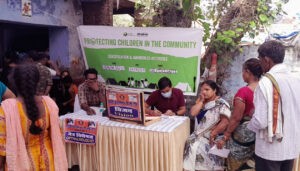
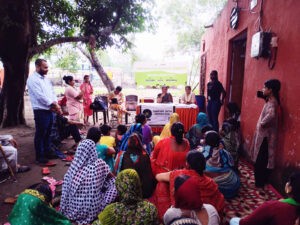
Followed by conducting medical health camps and legal aid camps in collaboration with District Legal Service Authority.
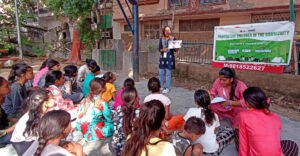
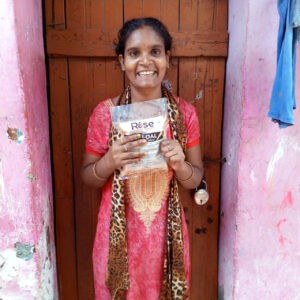
Distributing nutrition kits within the community and linking those in need with social service schemes such as Laadli Yojna and Ayushman Bharat, or even assisting families in securing their Aadhar Cards and/or Labour Card are some of the routine activities conducted with and for parents.
To sum it up, Child Activity Centers are a haven for children where they learn and grow in a supportive environment with their peers. Seeing their children receive the supplementary care and nurturing that they need, parents of these children, too, find solace and confidence in the bright future that awaits their children.
